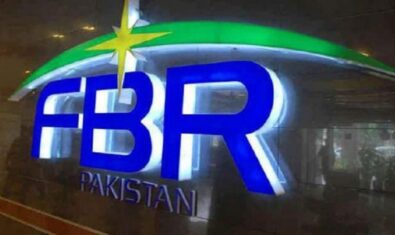Pakistan Telecommunication Authority (PTA) has pulled the plug on mobile internet for an indefinite period as per the directives of the Ministry of Interior, Government of Pakistan.
Key social media platforms such as Facebook, Twitter, and YouTube have been blocked in Pakistan. The move came amidst the deteriorating law and order situation following the arrest of former Prime Minister and Chairman of Pakistan Tehreek-i-Insaf (PTI), Imran Khan.
According to data gathered by ProPakistani, telecom operators in Pakistan have suffered an estimated revenue loss of Rs. 1.64 billion till now due to the shut down of mobile broadband services, and the government has lost around Rs. 574 million in tax revenue with losses expected to swell if the restrictions are not lifted.
Besides the heavy financial losses incurred as a result, this artificial hiatus of network and social media applications is a direct violation of human rights and an unnecessary and disproportionate response to socio-political issues. Businesses, students, and individual users have all been affected by the shutdown, who use the internet and social media apps to connect with their loved ones or conduct life and work-related tasks.
This data service closure is particularly massive because the majority of internet usage in Pakistan is through mobile data. For instance, there are less than 2.5 million wired internet users as compared to 125 million 3G/4G users in Pakistan despite insufficient wired infrastructure.
Impact Breakdown
The suspension of mobile internet has hit ride-hailing services such as Careem, and InDrive, and delivery services like Foodpanda and Bykea the hardest. These platforms employ approximately 160,000 riders in addition to more than 12,000 restaurants and home chefs using these platforms, all connected digitally.
In summary, the nationwide internet shutdown has impacted:
- Around 160,000 Bykea, InDrive, Careem, Uber captains, drivers and riders
- Around 12,000 foodpanda home chefs, restaurants
- Roughly 500,000 freelancers
- Almost 90,000 POS vendors
- Some 42,483,573 mobile wallets
- 6,000 e-commerce stores
Most of these drivers and riders come from the lowest income groups and rely on daily incomes for sustenance. After the devasting floods last year took away the livelihoods of people across the country, a lot of people moved to cities to find work and ended up working for taxi hailing or food delivery services to be able to support their families. The recent internet restrictions have taken away their livelihood again.
Digital Payments
Digital payments are another important facility that has come to a standstill. The facility not only ushers in a lot of inconvenience for users but also affects large portions of sales at petrol stations, convenience stores, etc.
There are more than 90,000 digital Points-of-Sale (PoS) machines across the country which provided a convenient digital shopping experience but now remain disconnected.
According to Reuters, POS transactions have fallen by nearly 50 percent after Imran Khan’s arrest which saw countrywide protests. Authorities decided to shut down mobile internet services to offset the impact, at least online.
No internet means users are unable to benefit from crucial digital facilities such as telehealth that benefit lots of patients particularly those who are immobile or are based in remote regions lacking basic healthcare facilities.
The need for emergency telehealth facilities increased in cities as well where all major roads were blocked and access to hospitals restricted. A reliable source in healthcare told that the lack of mobile internet affected caregivers who provided health services at home and connected with their patients remotely.
Pakistan has a thriving startup and freelancing landscape that entirely depends on reliable connectivity. The losses incurred by these small enterprises during internet blackouts may be too much for them to recover from.
Fiverr, a renowned global freelancing platform turned off the accounts of Pakistani freelancers provisionally, in view of the unavailability of the internet in the country.
Following COVID-19, online learning has become a routine practice. A number of higher and secondary level educational institutions conduct online classes that have been disrupted by the ongoing internet blackout.
The blockage of social media sites also affected countless small and medium businesses. Facebook, YouTube, and TikTok offer earning opportunities for millions of content creators across Pakistan. They not only earn for themselves but support their families as well.
Telecom users who subscribe to daily and weekly bundles using data are also incurring losses as they are unable to activate any bundles due to the suspension of data service.






















This is the reality of Pakistan. No one here understands technology and education. All they see is a means for entertainment only.